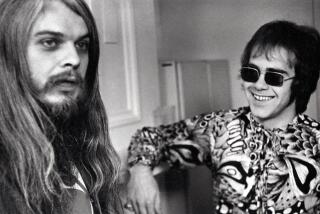Minority Writers Needn’t Focus on Being a Minority
Another summer break has begun, and with it the arrival of a new edition of the essay anthology I use when I teach college freshman writing classes. Instructors use these anthologies to teach students how to compose and organize nonfiction writing for use in school, work and daily life.
The essays, used in classes as models, typically include a mix of well-known and lesser-known writers. Like every edition published since the early 1990s, this new edition offers a selection of writers that is ethnically diverse. I’m glad that has not changed. But something else that has not changed has me worried: Every minority writer is writing about being a minority.
I have browsed dozens of anthologies over the years and found almost zero exceptions to this pattern. Every black writer has a piece about the special challenges of being black. Every Latino writer has a piece on growing up Latino or speaking Spanglish. Native American writers lament their treatment at the hands of Caucasian police or describe journeys they made to rekindle their lost heritage. Chinese American and Korean American writers have pieces about the difficulties their Asian-born parents have living in America. And so on.
Please don’t misunderstand me. I rejoice at these honest and exciting essays, and I teach some of them in my classes every semester. But it seems that writers who happen to be members of minority groups are getting pigeonholed. I think it has become understood and expected, at least by book editors and English teachers and perhaps by society as a whole, that minorities write about minorities and that white people write about everything else. With very rare exceptions, any essay about a nonracial issue -- such as history, politics, science or nature -- comes from a Caucasian. It is understandable why our textbooks would form this way. Many minority writers choose to write about minority issues; indeed, organizations such as the Black Writers Alliance have been founded expressly for this purpose. Textbook editors and publishers seem to assume this is all that gets written and all that anyone wants to read.
Textbooks could still acknowledge the ethnicity of contributors, when appropriate, in the miniature biographies that are commonly provided before each essay. But why not broaden the content of the essays themselves?
I realize that the concerns of minority writers are real and that our nation still has a long way to go before it becomes comfortable with its increasingly multiethnic makeup. But will we really achieve harmony by endlessly thinking about ethnicity and race? I can understand why the early editions of these anthologies wanted to include so many essays of this type. Now that more than a decade has passed, it might be time to make some changes.
I am concerned about our Asian, African American, Latino and Native American students. What if some of them are hoping to become writers someday? Are we doing them a favor when we imply that the only thing they should be writing about is themselves? Let’s give credence to writers of all types, no matter what they write about.
*
David E. Goldweber teaches composition and literature in the San Francisco Bay Area.
More to Read
Sign up for our Book Club newsletter
Get the latest news, events and more from the Los Angeles Times Book Club, and help us get L.A. reading and talking.
You may occasionally receive promotional content from the Los Angeles Times.






